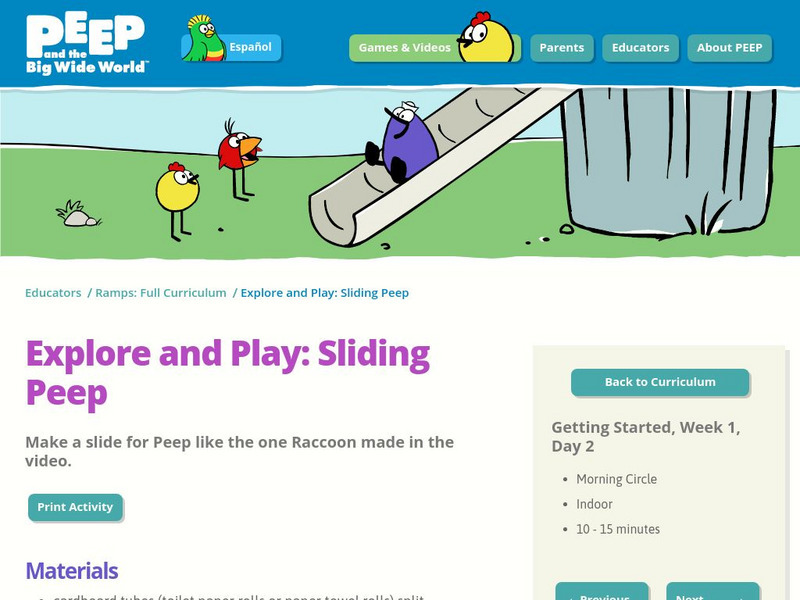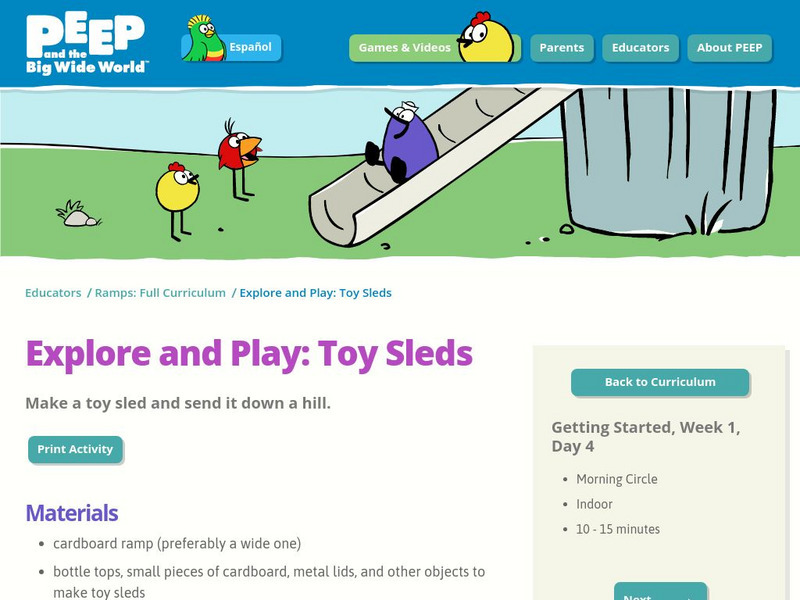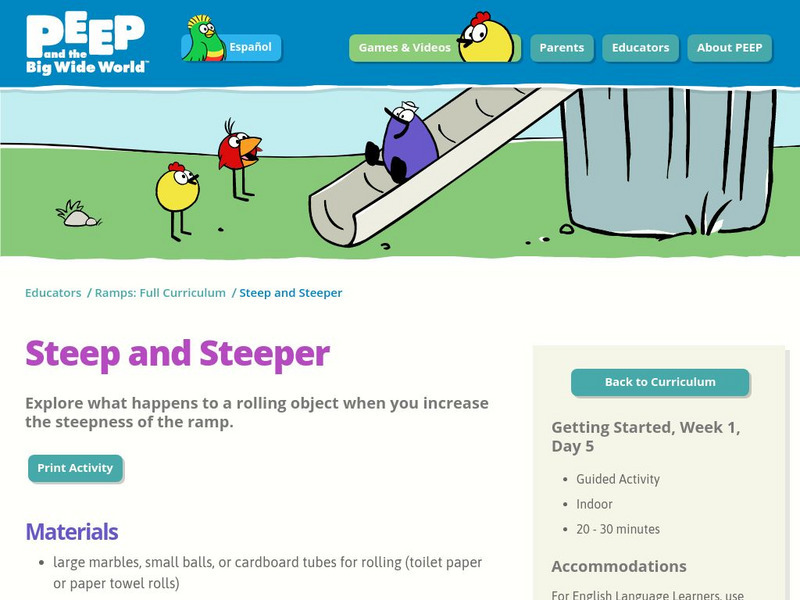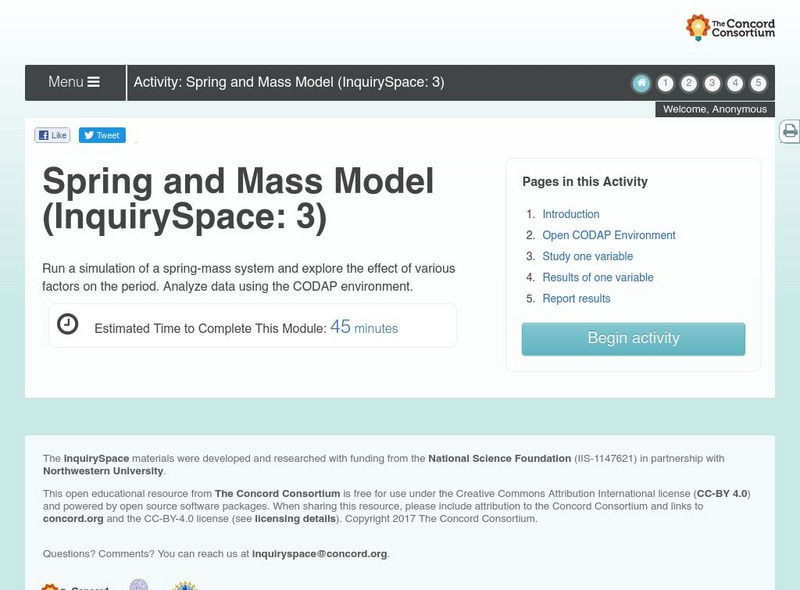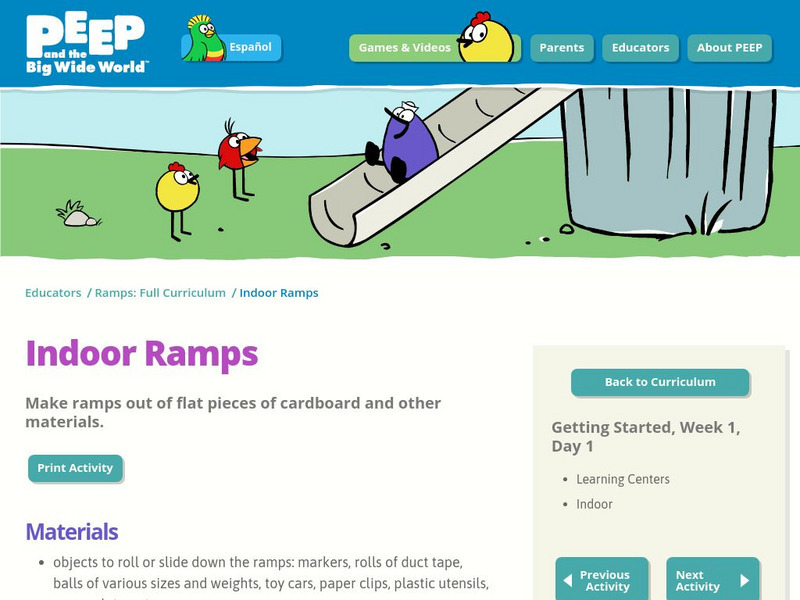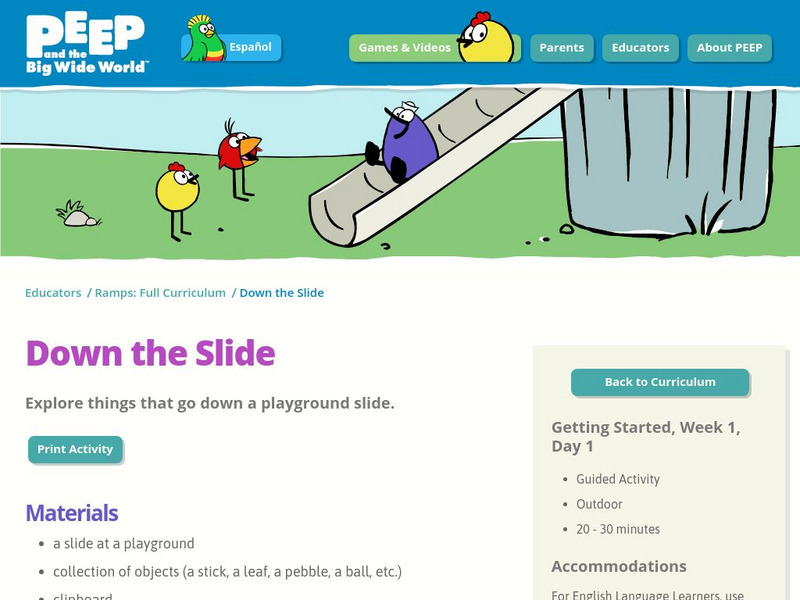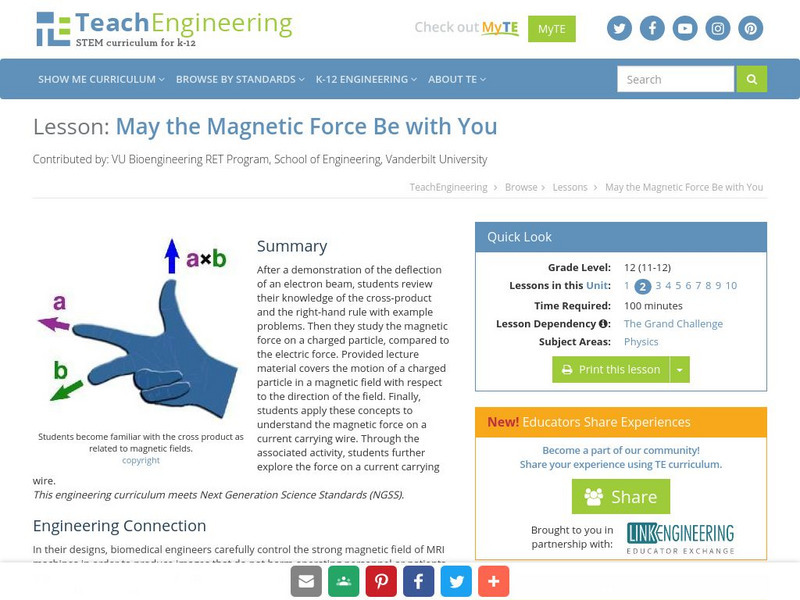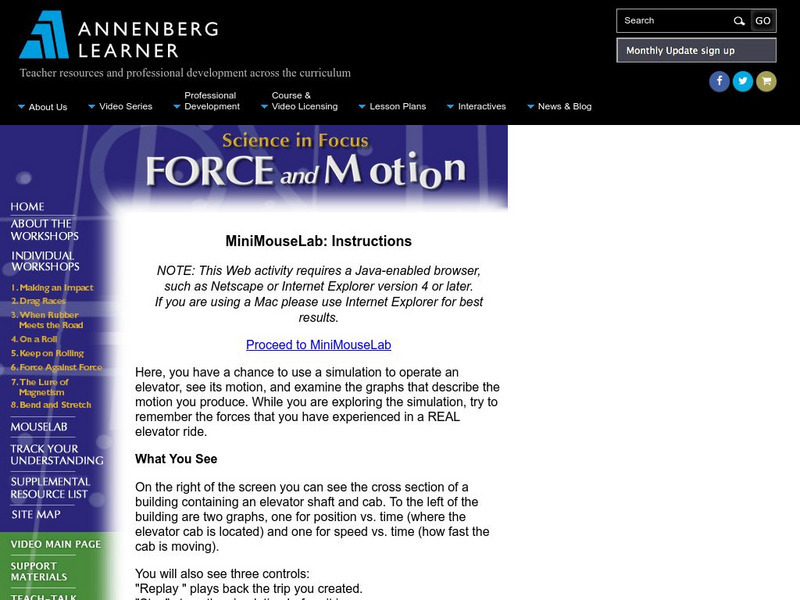Hi, what do you want to do?
PBS
Wgbh: Peep and the Big Wide World: Explore and Play: Sliding Peep
Students make their own ramps and test them out by sending various objects down them.
PBS
Wgbh: Peep and the Big Wide World: Explore and Play: Snowy Hills
Students make two snowy hills, one steep and one gentle, to discover their effects on rolling objects.
PBS
Wgbh: Peep and the Big Wide World: Explore and Play: Toy Sleds
Students experiment with different materials and objects to make a sled that will slide down the ramps.
PBS
Wgbh: Peep and the Big Wide World: Steep and Steeper
Students explore what happens to a rolling object when the steepness of the ramp is increased.
TED Talks
Ted: Ted Ed: Would You Weigh Less in an Elevator?
Video that uses an elevator in motion to describe the relationship among weight, gravity, and relative motion. [3:36] Includes a short quiz and a list of additional resources to explore.
Utah Education Network
Uen: Rock a Bye Pendulum
Activity uses scientific process to explore the effects of force on an object in motion.
Massachusetts Institute of Technology
Mit: Open Course Ware: Forces: Moving Charges in Magnetic Fields
Learners investigate moving charges in magnetic fields. Some topics explored in the activities are Lorentz force, motion of a charge, and magnetic fields. The resource consists of video clips, lecture notes, online textbook chapters,...
CK-12 Foundation
Ck 12: Newton's Third Law of Motion
[Free Registration/Login may be required to access all resource tools.] Students find out about Newton's Third Law of Motion, and explore situations involving multiple objects.
TeachEngineering
Teach Engineering: Energy of Motion
By taking a look at the energy of motion all around us, students learn about the types of energy and their characteristics. They first learn about the two simplest forms of mechanical energy: kinetic and potential energy, as illustrated...
Concord Consortium
Concord Consortium: Spring and Mass Model
An interactive tool where students can explore how a spring behaves, and how changing the elasticity, mass, push/pull force, and friction affect its motion or period. As the spring moves, its motion is shown on a distance-time graph.
CK-12 Foundation
Ck 12: Newton's First and Second Laws of Motion
[Free Registration/Login may be required to access all resource tools.] Students explore the concept of inertia and how it applies to Newton's First Law. They also learn about Newton's Second Law and answer both numerical and conceptual...
Physics Classroom
The Physics Classroom: Vectors and 2 D Motion Table of Contents
Learners explore vectors, projectile motion, and forces in two-dimension. The tutorial consists of lessons and problems to check for understanding.
PBS
Wgbh: Peep and the Big Wide World: Indoor Ramps
Have students make ramps out of flat pieces of cardboard and other materials.
PBS
Wgbh: Peep and the Big Wide World: Introduce Ramps
An introductory activity where students discover the way things roll and slide down ramps and hills.
PBS
Wgbh: Peep and the Big Wide World: Down the Slide
Take the students out to the playground so they can explore things that go down the slide.
PBS
Wgbh: Peep and the Big Wide World: Share the Day's Discoveries
Discuss classroom explorations and discoveries about ramps.
CK-12 Foundation
Ck 12 Exploration Series: Simulations: Physics: Bobsled
[Free Registration/Login Required] Learn about centripetal motion in the context of a bobsled on a track. Adjust variables to test how many ways the bobsled can stay on the track in a race with the simulation. Examine potential problems...
CK-12 Foundation
Ck 12 Exploration Series: Simulations: Physics: Everglades Airboat
[Free Registration/Login Required] Learn about Newton's 2nd Law- the relationship between force, mass, and acceleration, for a wind-powered boat.
TeachEngineering
Teach Engineering: May the Magnetic Force Be With You
This lesson plan begins with a demonstration of the deflection of an electron beam. Learners then review their knowledge of the cross product and the right hand rule with sample problems. After which, students study the magnetic force on...
TeachEngineering
Teach Engineering: Up, Up and Away! Airplanes
The airplanes unit begins with a lesson on how airplanes create lift, which involves a discussion of air pressure and how wings use Bernoulli's Principle to change air pressure. Following the lessons on lift, students explore the other...
Annenberg Foundation
Annenberg Learner: Mini Mouse Lab
Use a simulation to operate an elevator and see its motion. Examine the graphs that describe the motion you produce.
PBS
Pbs Teachers: Zoom Vehicle
Explore forces of motion and properties of gasses by building a vehicle that runs along a string track powered by air pressure.
PBS
Pbs Learning Media: Curious George Stem: Ramp N Roll Lesson Plan
Explore how different objects move down ramps in this Curious George lesson. Students will make predictions about how objects will roll down different heights of ramps.
City College of New York
City Technology: Fantastic Elastic
Explore engineering technology with this unit. Students will study how to design and execute two types of homemade vehicles using elastic.





